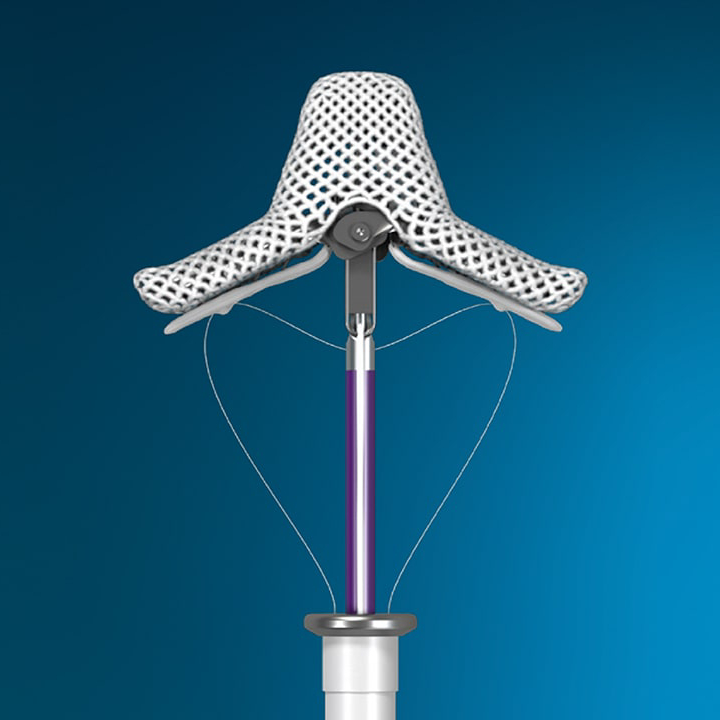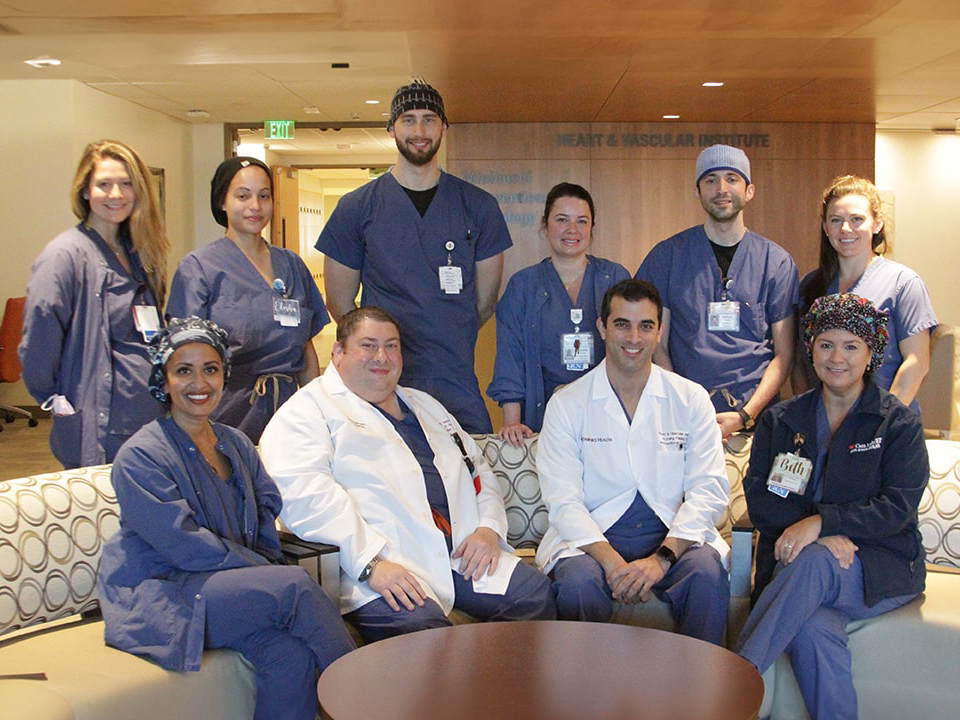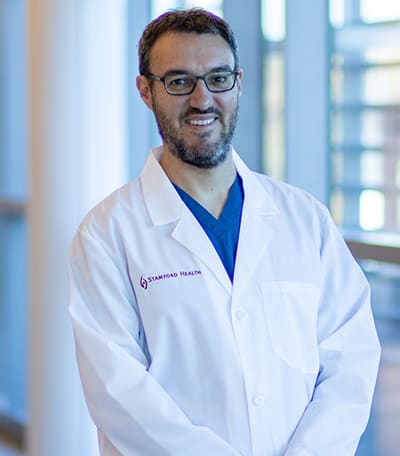What Is The TEER Procedure?
If you’ve been diagnosed with primary or secondary mitral regurgitation, the MitraClip™ mitral transcatheter edge-to-edge repair (TEER) could be a possible treatment that is now offered at Stamford Health. Mitral valve regurgitation occurs when the valve leaks, pushing blood back into the heart. The mitral valve is one of the heart’s four valves that helps blood flow through the heart and out to the body. When a leak occurs, it can cause fatigue, shortness of breath, fluid buildup in the lungs or legs, and heart palpitations.
Like many of the complex procedures offered, with TEER, patients can feel better quicker and face fewer hospitalizations and life-threatening conditions later in life.

Learn More About TEER Therapy
MitraClip successfully treats a range of valve anatomies like presence of severely degenerative leaflets, wide flail gaps or widths, calcified landing zone, wide jet, and more.
- The implantable MitraClip devices feature cobalt-chromium construction and a polyester cover designed to promote tissue growth.
- This procedure has been found to lower the rate of hospitalization for heart failure and lower all-cause mortality within 24 months of follow-up.
- While this is a new procedure, over 100,000 people have been treated with MitraClip therapy.

Your TEER Experience At Stamford Hospital
Our skilled team works collaboratively with your doctors to make the experience as comfortable and successful as possible.
- Your procedure will take place in our comfortable and modern cardiac catheterization lab for a streamlined experience.
- You’ll be placed under general anesthesia and utilize a ventilator to help you breathe during the procedure.
- During TEER, your doctor will insert a catheter with the MitraClip connected to it into a vein in your upper leg, which is then threaded to your heart’s mitral valve. Using imaging technology, the clip will be placed on the mitral valve to reduce regurgitation.
- After you’re discharged, expect to take it easy for about a week and follow your doctor’s directions on medications and follow-up appointments.
- You may be prescribed short-term anticoagulation therapy following the procedure.






